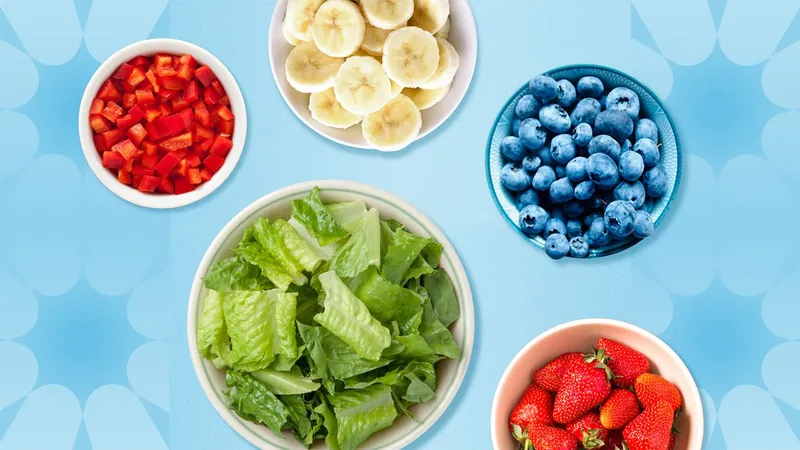
Unlock Better Sleep: The Surprising Power of Fruits and Vegetables
2025-07-11
Author: Li
Remember when your mom insisted you eat your fruits and veggies for strength? Well, new research reveals that those nutritious foods might also be your ticket to a peaceful night’s sleep!
Fruits and Vegetables: Your Sleep Allies?
A fascinating study conducted by researchers at Columbia University suggests that the key to improving sleep quality might be as simple as swapping out some of your meals for more fruits and vegetables. According to coauthor Dr. Marie-Pierre St-Onge, a professor of nutritional medicine, “We can improve sleep with straightforward dietary changes.”
The Study: Sleep and Diet Decoded
In this study, 34 adults aged 20 to 49 provided over 200 days of data combining their diet and sleep routines. Armed with wrist monitors to track their sleep and an app for logging their meals, participants reported sleeping seven to nine hours nightly. The researchers analyzed how various nutrients influenced sleep quality.
What Did They Discover?
The findings were intriguing. On days when participants enjoyed higher quantities of fruits, vegetables, and complex carbohydrates, they experienced better sleep with fewer nighttime awakenings. However, not all carbs are created equal. Dr. St-Onge warns that simple carbs, like sugars and white bread, don’t help your sleep as much as complex carbs that come with fiber and magnesium.
Beware of Red Meat!
Interestingly, on nights when participants consumed more red or processed meat, they were more likely to wake up frequently. Dr. Sudha Tallavajhula, a sleep neurologist, reinforced these findings, noting that complex carbohydrates assist in the absorption of tryptophan, a vital amino acid that aids in melatonin production—essential for regulating sleep cycles.
Why Magnesium Matters
But there’s more! Magnesium, found in plentiful amounts in leafy greens and whole grains, plays a critical role in enhancing sleep. Dr. St-Onge emphasizes that magnesium aids brain signals that help relax the body and contributes to melatonin production, making it a crucial player in sleep health.
Practical Tips to Boost Your Veggie Intake
While the study involved a limited sample size, it opens the door to conversations about diet-related sleep improvement. Nutrition expert Sharon Collison recommends filling half your plate with fruits and vegetables, with the other half comprising fiber-rich grains. Starting small can make a big difference—try snacking on fruit after work to curb evening hunger.
Easy Changes, Big Results!
Healthy eating doesn’t have to be complicated or expensive. As Dr. St-Onge reminds us, frozen fruits and veggies are just as beneficial as fresh ones. By making these small adjustments to your diet, you might find yourself trading restless nights for sweet dreams!


 Brasil (PT)
Brasil (PT)
 Canada (EN)
Canada (EN)
 Chile (ES)
Chile (ES)
 Česko (CS)
Česko (CS)
 대한민국 (KO)
대한민국 (KO)
 España (ES)
España (ES)
 France (FR)
France (FR)
 Hong Kong (EN)
Hong Kong (EN)
 Italia (IT)
Italia (IT)
 日本 (JA)
日本 (JA)
 Magyarország (HU)
Magyarország (HU)
 Norge (NO)
Norge (NO)
 Polska (PL)
Polska (PL)
 Schweiz (DE)
Schweiz (DE)
 Singapore (EN)
Singapore (EN)
 Sverige (SV)
Sverige (SV)
 Suomi (FI)
Suomi (FI)
 Türkiye (TR)
Türkiye (TR)
 الإمارات العربية المتحدة (AR)
الإمارات العربية المتحدة (AR)